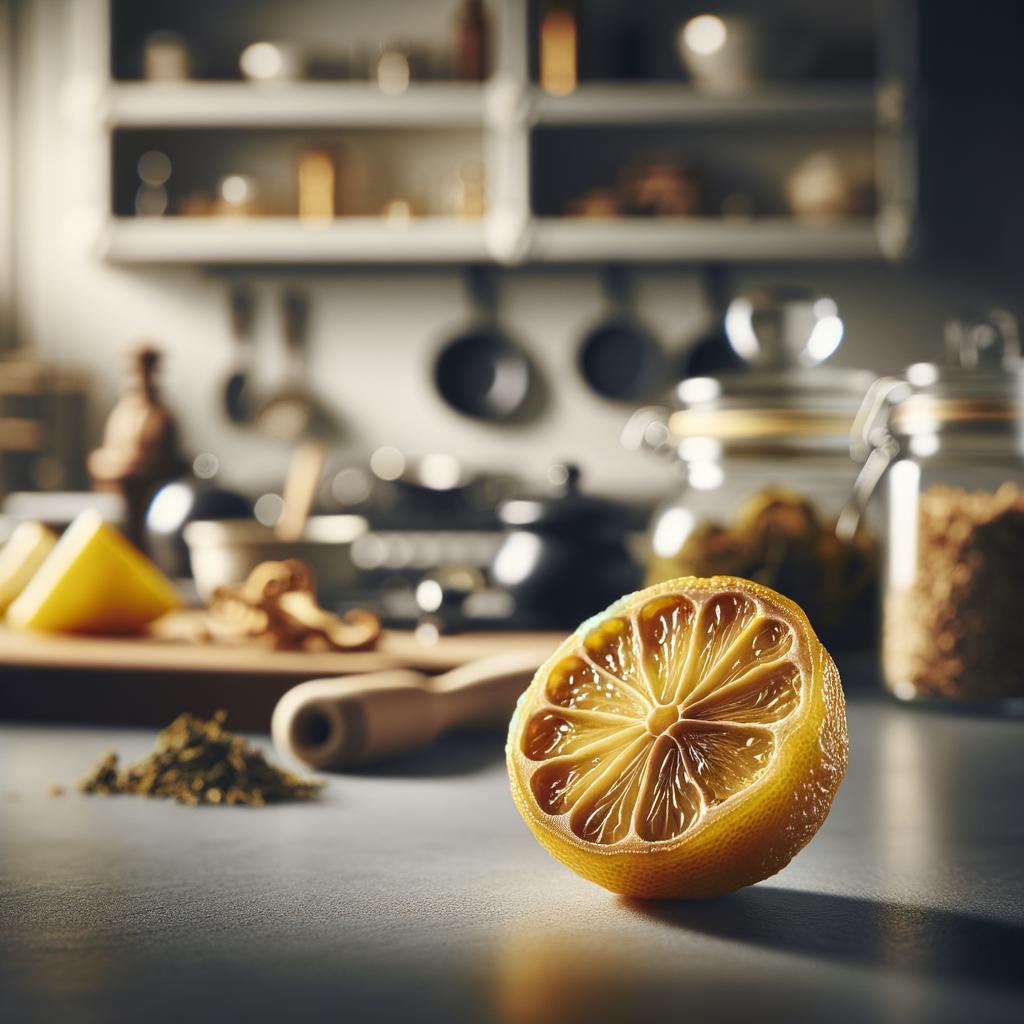Preserved Lemon

Description
Preserved lemons, a jewel in the crown of Mediterranean cuisine, are whole lemons that have been pickled in salt and their own juices. The result is a unique ingredient that is simultaneously tart, salty, and intensely lemony, but with a mellowness not found in fresh citrus. They possess a vibrant golden yellow color, akin to the sun setting over the Mediterranean Sea, and their texture is soft yet firm, a delightful paradox. Their unique characteristic lies in the transformation of the usually discarded peel into a star ingredient. The preserving process softens the rind and reduces its bitterness, making it an edible and flavorful component.
Primary Uses
Preserved lemons are a versatile ingredient used to add a vibrant, tangy flavor to a variety of dishes. They're a key component in many Moroccan recipes, such as tagines and couscous, and are also used in Tunisian and Algerian cuisines. The pulp can be used in stews and sauces, while the peel is often thinly sliced or diced in salads, salsas, or baked goods. Beyond the culinary world, preserved lemons have a cultural significance in Middle Eastern and North African weddings, where they symbolize the wish for newlyweds to have a life filled with flavor and love.
History
The tradition of preserving lemons dates back to at least as early as the 12th century, when Arab Mediterranean cultures discovered that pickling lemons preserved their vibrant flavor and made them available year-round. This was particularly beneficial for seafaring explorers, who found preserved lemons to be a valuable source of vitamin C on long voyages. Over time, their use spread across the Middle East and North Africa, becoming a staple in many regional cuisines. There's a romantic tale in Moroccan folklore that a fairy named "Limonia" gifted the first preserved lemon to a poor farmer, which brought prosperity and happiness to his family.
Nutritional Information
Preserved lemons are a good source of vitamin C and dietary fiber. They also contain small amounts of calcium, vitamin A, and iron. The preserving process may reduce the vitamin C content slightly compared to fresh lemons, but they still retain a significant amount. Consuming preserved lemons can aid in digestion, boost immunity, and provide antioxidants. However, due to their high salt content, they should be used sparingly, especially by individuals monitoring their sodium intake. Compared to similar pickled ingredients, preserved lemons stand out for their unique flavor and versatility in cooking.

